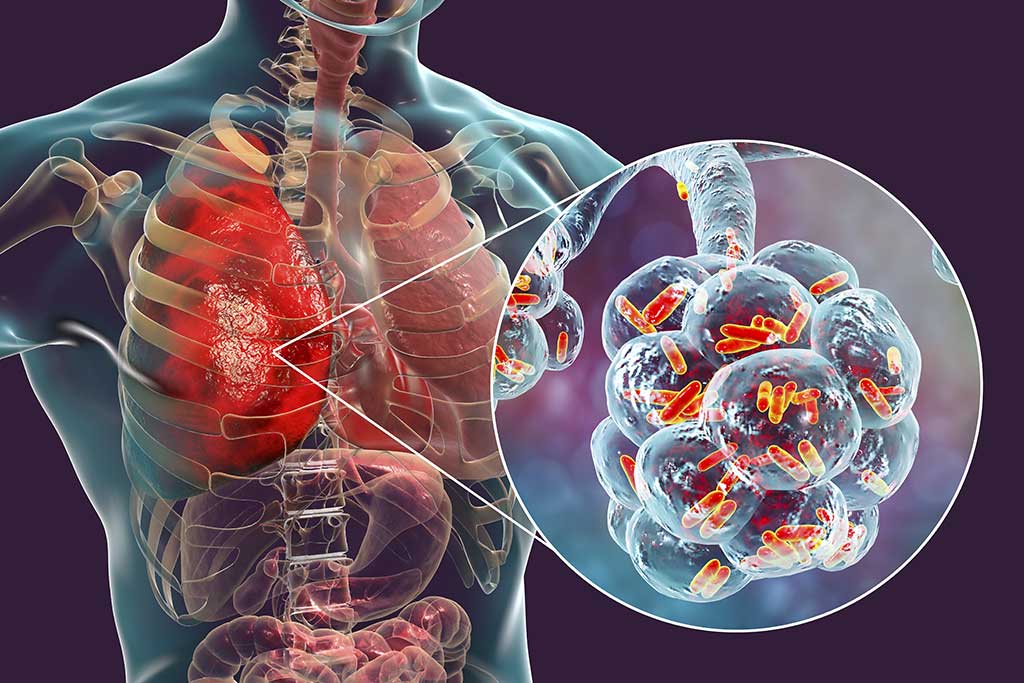Pneumonia is an infection that occurs in the lungs. It isn’t a condition that is unique to just the elderly, but they do have a higher chance of worrying complications and even death. This is because the older we get, the more likely our immune system will weaken. This is further exacerbated by any pre-existing chronic health conditions that the elderly are also more likely to have.
Symptoms in older adults can be more subtle, especially if they also overlap with other conditions. It is, therefore, more important to look out for the early signs to prevent a delay in getting a proper medical diagnosis and adequate treatment.
What Is Pneumonia?
Pneumonia is a respiratory infection that affects the alveoli, or tiny air sacs, located in the lungs. This results in inflammation and can cause the lungs to fill with liquids like pus. This is problematic as it affects the body’s ability to circulate oxygen around the body, affecting many important bodily processes. The infection can either affect one or both lungs at a time. Having pneumonia in both lungs, or double pneumonia doesn’t present with more or worse symptoms. The severity of the condition depends on the body’s ability to fight it off, the cause of the infection as well as the age of the individual.
So, what can pneumonia be caused by? In the United States, it is normally caused by either bacteria or a kind of virus. The most common bacterial pneumonia is from a germ named Streptococcus pneumoniae and the most influenza virus is one of the leading causes of viral pneumonia.
Symptoms of Pneumonia
The symptoms of pneumonia will vary from person to person depending on their age and overall health. The most common signs include:
- Coughing with phlegm
- Chest pain when coughing or breathing
- Fever
- Fatigue
- Shortness of breath
- Fatigue
On top of these signs, people suffering from pneumonia can also show signs of confusion, become less mentally aware, or even less alert. If you suspect that your loved one is suffering from pneumonia at any point in time, immediately contact your medical provider before complications occur.
Older adults in particular are at higher risk for complications. These include:
- Pleurisy, which is the inflammation that occurs in the membrane which covers our lungs
- Bacteraemia, which can spread to other organs in the body by entering the bloodstream through the lungs, and is a potentially fatal infection
- Acute respiratory distress syndrome (ARDS), which happens when pneumonia has overwhelmed and overstressed the lungs, causing respiratory failure
- Lung abscesses where cavities that are filled with pus develop in the infected lung area
Treatment for Pneumonia
There is no one size fits all treatment for pneumonia, it will highly depend on what caused the infection in the first place. For example, if the underlying cause is bacterial, it will be treated with antibiotic medicine. If the underlying cause is viral, it will be treated with antiviral medication. More severe infections or individuals who suffer complications may have to undergo other forms of treatment like surgery or ventilators.
Either way, make sure to complete the full dose of the medicine prescribed by your doctor and to have sufficient rest. If you or your loved one is currently recovering from pneumonia and needs extra care, it might be prudent to consider a placement at a senior living community. For many of us, it might be hard to provide round-the-clock care, or correctly identify all worrying symptoms. This is why Discovery Commons At Bradenton offers 24-hour nursing care to provide all our residents and their loved ones with peace of mind. For more information on our services, contact us today!







